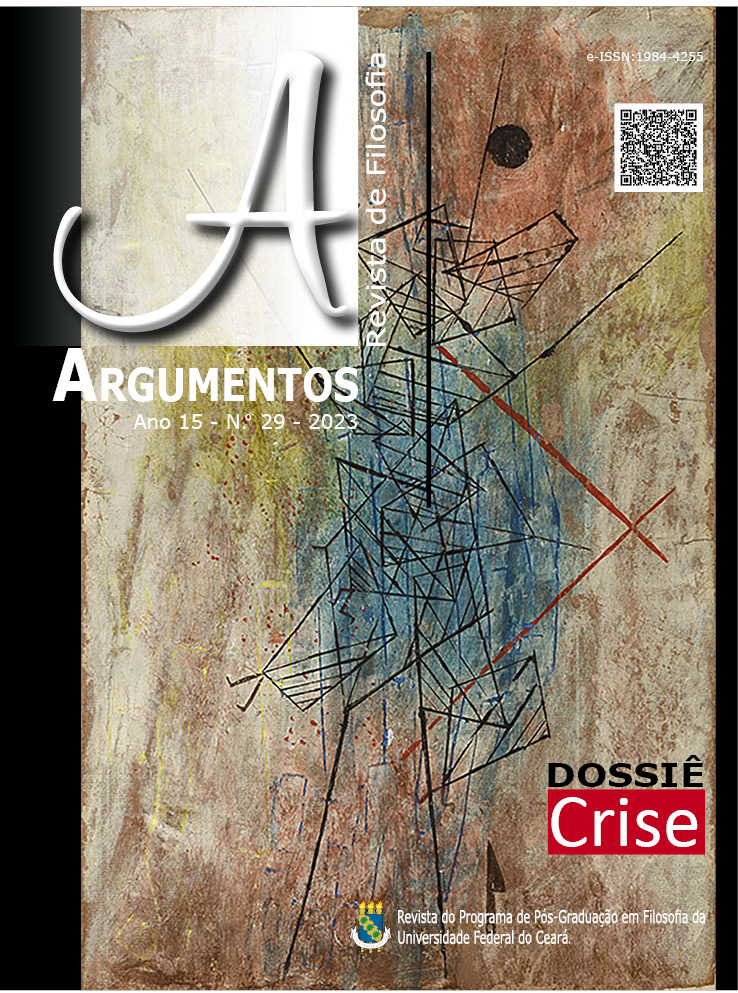The disease of love in Lucretius and Catullus
DOI:
https://doi.org/10.36517/Argumentos..29.82958Keywords:
Disease of Love. Medicine. Lucretius. Catullus.Abstract
The present article points out that both Lucretius and Catullus understand passionate love as an illness, as they coincide in the descriptions of such a disease in all its stages. What then is it that separates them? Where is the confrontation between them? The answer lies in the attitude that each one adopts in the face of illness. While Lucretius considers passionate love to be something reprehensible and to be avoided by listening to reason, Catullus, although aware of the negative effects of this type of love, cannot avoid surrendering to it.
Downloads
References
CATULO. O Cancioneiro de Lésbia. Tradução de Paulo Sérgio de Vasconcellos. São Paulo: HUCITEC, 1991.
CATULO. O Livro de Catulo. Tradução comentada dos poemas de Catulo por João Ângelo Oliva Neto. São Paulo: USP, 1996.
DIÔGENES LAÊRTIOS. Vidas e doutrinas dos filósofos ilustres. Tradução do grego, introdução e notas de Mário da Gama Kury. Brasília: UnB, 1977.
TITO LUCRÉCIO CARO. Da natureza. Tradução e notas de Agostinho da Silva. São Paulo: Nova Cultural, 1988 (Coleção Os Pensadores).
TITO LUCRÉCIO CARO. Da Natureza das Coisas. Tradução de Luís Manuel Gaspar Cerqueira. Lisboa: Relógio D’Água, 2015.
SAFO DE LESBOS. Poemas e Fragmentos. Tradução de Joaquim Brasil Fontes. São Paulo: Iluminuras, 2003.
Downloads
Published
How to Cite
Issue
Section
License
Argumentos magazine is licensed under an International Creative Commons Attribution License.
The Magazine uses CC BY inclusion
1) The authors retain the copyright granted to the magazine or the right to initial publication, with the work regularly licensed under the Creative Commons Attribution, which allows the sharing of the work with acknowledgment of authorship and initial publication in this magazine.
2) The authors are authorized to contract additional applicable contracts, for non-exclusive distribution of the version of the work published in this journal (for example, publication in the institutional repository or as a chapter of the book), recognition of authorship and initial publication in this journal.
3) Authors are authorized and encourage to publish and distribute their work online (for example, in institutional repositories or on their personal pages) at any time before or during the editorial process, as they can generate productive changes, as well as increase the impact and reference of published work.




.jpg)










._._3.png)
1.jpg)
._._._.png)
